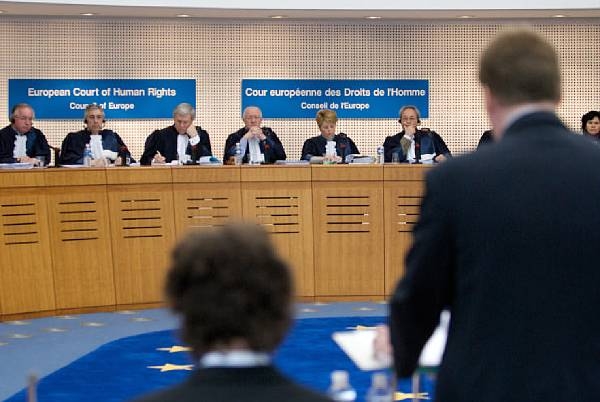European Court of Human Rights: Judgements against Italy on violations of article 8 ECHR - Part 2

Table of Contents
- Case of A.A. and Others v. Italy
- Case of Ardimento and Others v. Italy
- Case of Briganti and Others v. Italy
- Case of Perelli and Others v. Italy
Case of A.A. and Others v. Italy – 37277/16 – 5.05.2022
This case concerned the Italian authorities' failure to protect the applicants from environmental pollution caused by a large steelworks in the city of Taranto. The applicants alleged that the emissions from the plant posed serious risks to their health and that the authorities had failed to take adequate measures to safeguard their well-being.
The European Court of Human Rights found that Italy had violated Article 8 of the ECHREuropean Convention on Human Rights, which guarantees the right to respect for private and family life. The Court concluded that the state had not taken sufficient steps to protect the applicants from the harmful effects of industrial pollution. Furthermore, the Court also found a violation of Article 13, due to the lack of an effective remedy through which the applicants could have sought the decontamination of the affected areas or the prevention of further exposure.
Although the Court did not award any financial compensation, it emphasised the obligation of the Italian authorities to adopt both individual and general measures to address the violations. The Committee of Ministers of the Council of Europe later declared that the question of individual measures had been resolved, noting that further protection for the applicants still residing or working near the steelworks is closely tied to the broader systemic changes.
The A.A. and Others judgment confirmed that the Italian state failed to protect its citizens from industrial pollution, thereby endangering their health and violating their human rights. It also underscored the need for Italy to implement long-term structural solutions in environmental and public health policy.
Case of Ardimento and Others v. Italy – 4642/17 – 5.05.2022, Case of Briganti and Others v. Italy – 48820/19 – 5.05.2022, Case of Perelli and Others v. Italy – 45242/17 – 5.05.2022
The cases Ardimento and Others v. Italy, Briganti and Others v. Italy, and Perelli and Others v. Italy collectively represent a critical chapter in the European Court of Human Rights’ jurisprudence on environmental harm and state responsibility. All three judgments stem from the same underlying issue: the Italian government’s longstanding failure to address the grave public health and environmental crisis caused by the emissions of the Ilva steel plant in Taranto, one of Europe’s largest industrial sites.
In each case, the applicants were either residents of Taranto or former Ilva employees, many of whom developed serious illnesses such as cancer or suffered from long-term toxic exposure. Some applicants were heirs of deceased victims, and in Perelli, a 36-year-old man died shortly after filing his claim. The applicants consistently alleged that the Italian state:
- Failed to adopt effective legal and regulatory measures to protect their health and private life (Article 8 ECHR);
- Did not provide access to effective remedies to prevent or remedy the harm (Article 13);
- In the Briganticase, the applicant claimed that the exposure amounted to inhuman or degrading treatment (Article 3), which was ultimately rejected as inadmissible;
- In Perelli, the alleged violation of the right to life (Article 2) concerning the death of Mr. Cantore was declared inadmissible due to failure to exhaust civil remedies.
In all three cases, the Court found that the Italian state had violated Articles 8 and 13 ECHR. The Court decided that:
- The pollution from Ilva posed a serious, ongoing threat to the health and well-being of the population.
- The Italian authorities failed to strike a fair balance between economic interests and the rights of individuals to live in a safe and healthy environment.
- There was no effective legal avenue through which residents could demand environmental clean-up or proper protection, thus breaching Article 13.
In particular, the Court underscored that despite the existence of an Environmental Plan approved by national authorities, its implementation remained incomplete, and Italy had not provided the Court with sufficient evidence of effective measures undertaken to eliminate or contain the risk.
The ECtHR awarded:
- €12,000 in non-pecuniary damages to the heirs of Nicola Cantore (Perelli) and Mr. Briganti (Briganti), due to the especially severe impact on their private and family life.
- €5,000 jointly for legal costs to all applicants in each case.
- In the other cases (Ardimento and most applicants in Briganti and Perelli), the Court considered the finding of a violation sufficient just satisfaction under Article 41 of the Convention.
While the Court did not order specific environmental remediation, it reiterated the urgency of implementing the environmental cleanup plan. The execution of these judgments is under the supervision of the Committee of Ministers of the Council of Europe, which requires Italy to demonstrate actual progress, especially with regard to reducing emissions, securing access to medical monitoring and information, and ensuring accountability for the long-standing harm caused.
These three cases underscore that systemic state inaction in the face of environmental harm can amount to a violation of human rights, specifically, the right to private life and the right to an effective remedy. They also emphasise the legal responsibility of states to not only regulate polluting industries but also to inform the public, provide legal avenues for protection, and ensure the timely implementation of environmental safeguards.

